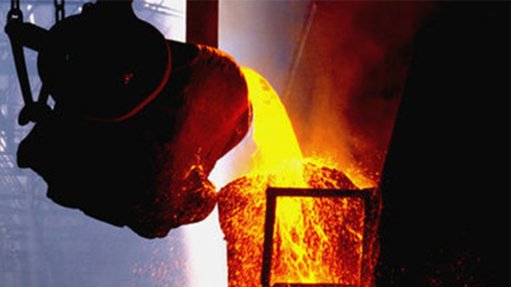Congo rebels muddy minerals market with illegal Rwanda exports, says UN report
Rebels in eastern Democratic Republic of Congo fraudulently exported at least 150 metric tons of coltan to Rwanda last year, leading to the largest contamination of the Great Lakes Region's mineral supply chain on record, UN experts said in a report.
The flows started after the M23 movement, a Tutsi-led organisation purportedly backed by Rwanda, seized the Rubaya area, which produces minerals used in smartphones and computers, following intense fighting in April.
M23's control of transport routes from Rubaya to Rwanda led to Rubaya minerals mixing in with Rwandan production, the UN Security Council's Group of Experts said in the report, published on Wednesday.
"This constitutes the most important contamination of supply chains with ineligible ... minerals recorded in the Great Lakes region over the last decade," the report said, referring to a vast area that includes north-east Congo, Rwanda, and other countries east of Congo.
Rwanda and M23 did not immediately respond to a request for comment.
The situation complicates procurement for technology manufacturers, who are under scrutiny to ensure that metals used in their products are not sourced from conflict zones like eastern Congo.
The report said the rebels established a so-called mining ministry in the occupied territory and ensured a monopoly for the export of coltan to Rwanda from Rubaya, which has one of the world's largest deposits of the strategic mineral.
In this way, the militants collected at least $800,000 per month in taxes on coltan production and trade in Rubaya, it said.
On the ground, the rebels doubled the wages of diggers to convince them to keep working in Rubaya and oversaw forced labour to widen roads to accommodate truck transport. They also patrolled the town and its mining sites to make sure minerals were only sold to authorised Congolese and Rwandan traders, it said.
In December, Congo filed criminal complaints against Apple subsidiaries in France and Belgium, accusing the tech firm of using conflict minerals in its supply chain. Apple disputes the allegations and says it has told its suppliers they must not use the minerals in question sourced from Congo or Rwanda.
Article Enquiry
Email Article
Save Article
Feedback
To advertise email advertising@creamermedia.co.za or click here
Press Office
Announcements
What's On
Subscribe to improve your user experience...
Option 1 (equivalent of R125 a month):
Receive a weekly copy of Creamer Media's Engineering News & Mining Weekly magazine
(print copy for those in South Africa and e-magazine for those outside of South Africa)
Receive daily email newsletters
Access to full search results
Access archive of magazine back copies
Access to Projects in Progress
Access to ONE Research Report of your choice in PDF format
Option 2 (equivalent of R375 a month):
All benefits from Option 1
PLUS
Access to Creamer Media's Research Channel Africa for ALL Research Reports, in PDF format, on various industrial and mining sectors
including Electricity; Water; Energy Transition; Hydrogen; Roads, Rail and Ports; Coal; Gold; Platinum; Battery Metals; etc.
Already a subscriber?
Forgotten your password?
Receive weekly copy of Creamer Media's Engineering News & Mining Weekly magazine (print copy for those in South Africa and e-magazine for those outside of South Africa)
➕
Recieve daily email newsletters
➕
Access to full search results
➕
Access archive of magazine back copies
➕
Access to Projects in Progress
➕
Access to ONE Research Report of your choice in PDF format
RESEARCH CHANNEL AFRICA
R4500 (equivalent of R375 a month)
SUBSCRIBEAll benefits from Option 1
➕
Access to Creamer Media's Research Channel Africa for ALL Research Reports on various industrial and mining sectors, in PDF format, including on:
Electricity
➕
Water
➕
Energy Transition
➕
Hydrogen
➕
Roads, Rail and Ports
➕
Coal
➕
Gold
➕
Platinum
➕
Battery Metals
➕
etc.
Receive all benefits from Option 1 or Option 2 delivered to numerous people at your company
➕
Multiple User names and Passwords for simultaneous log-ins
➕
Intranet integration access to all in your organisation

















